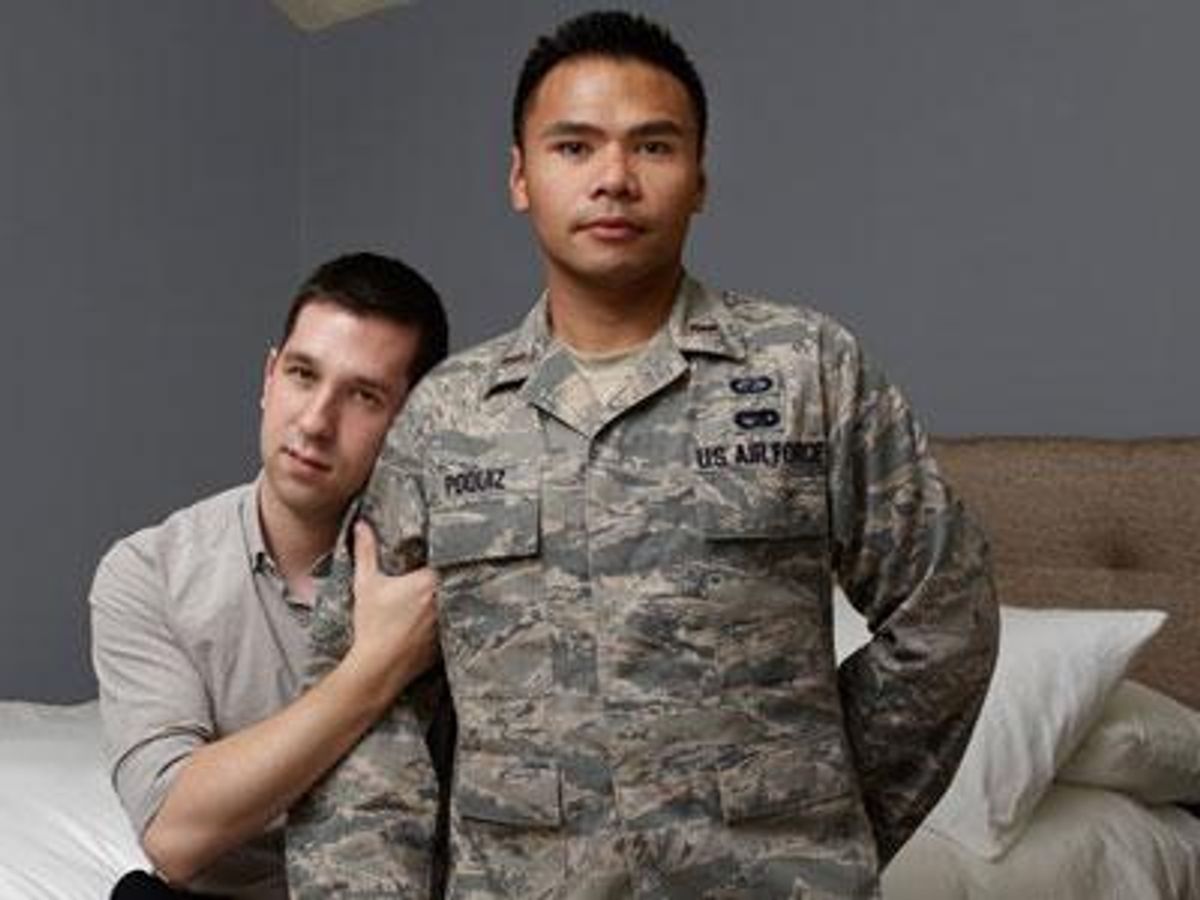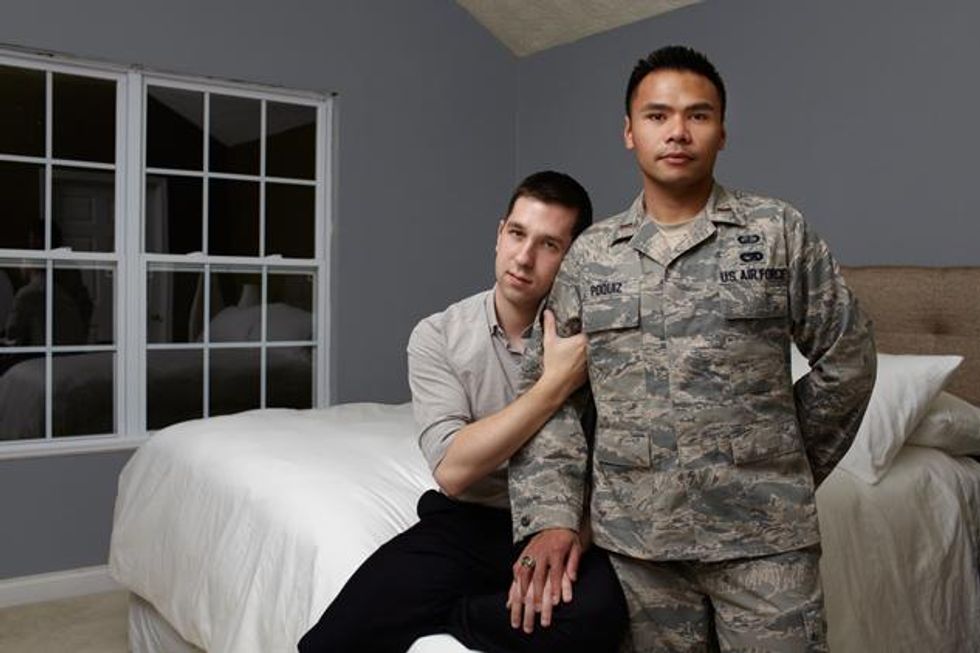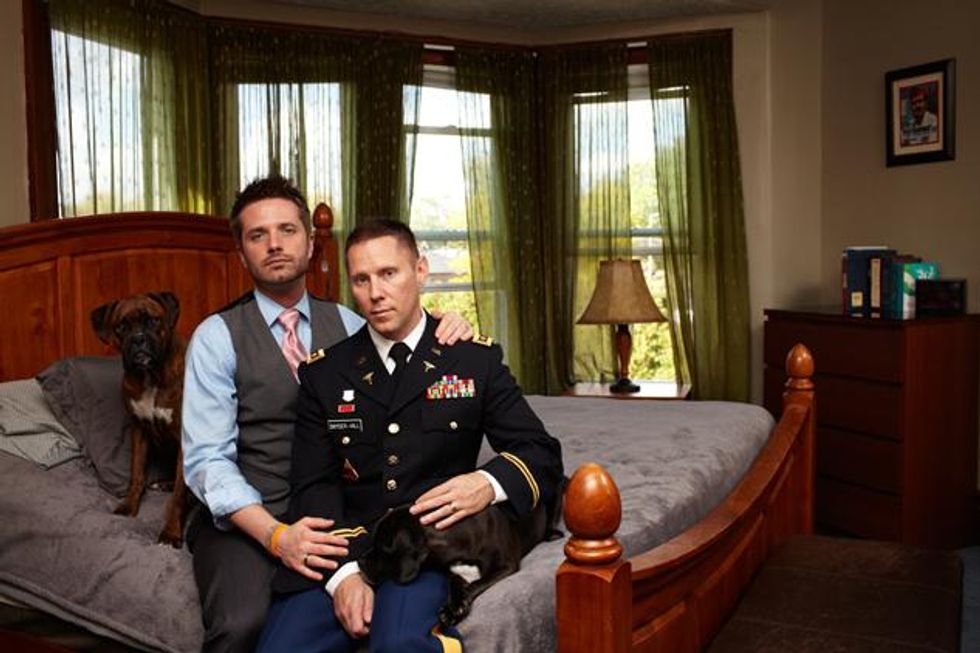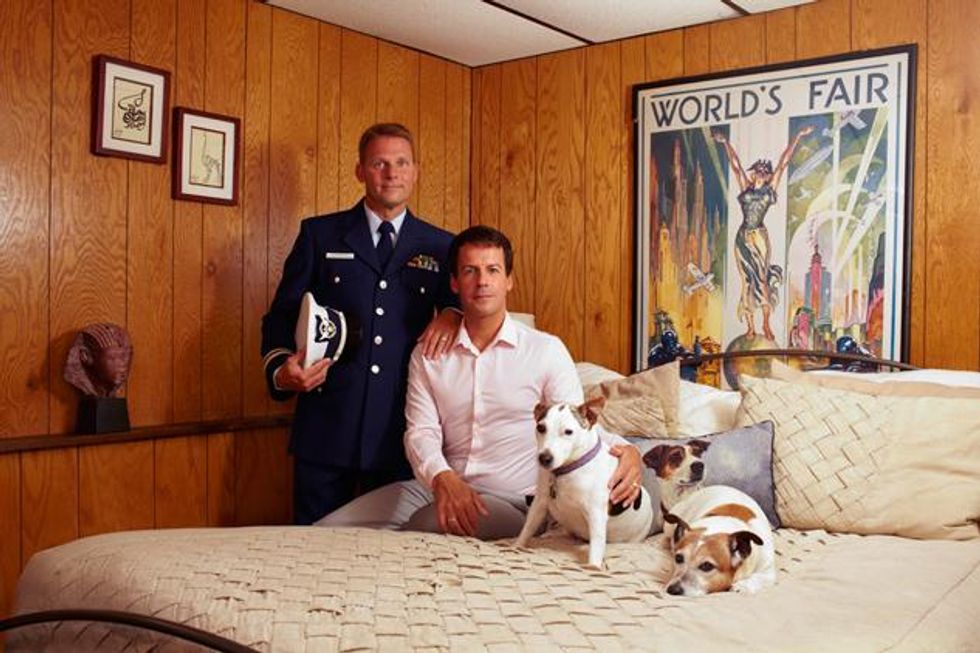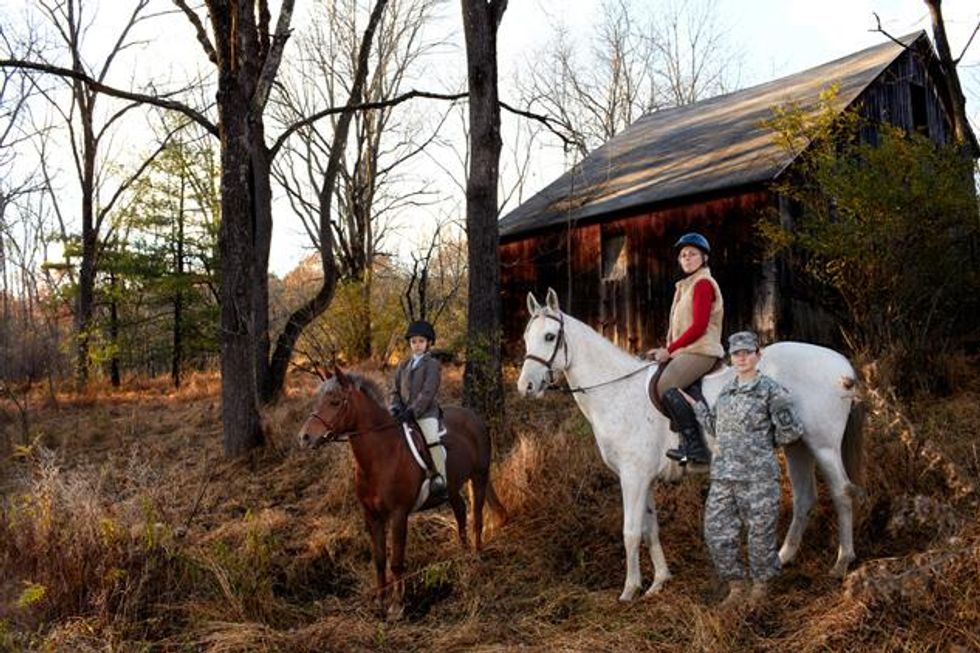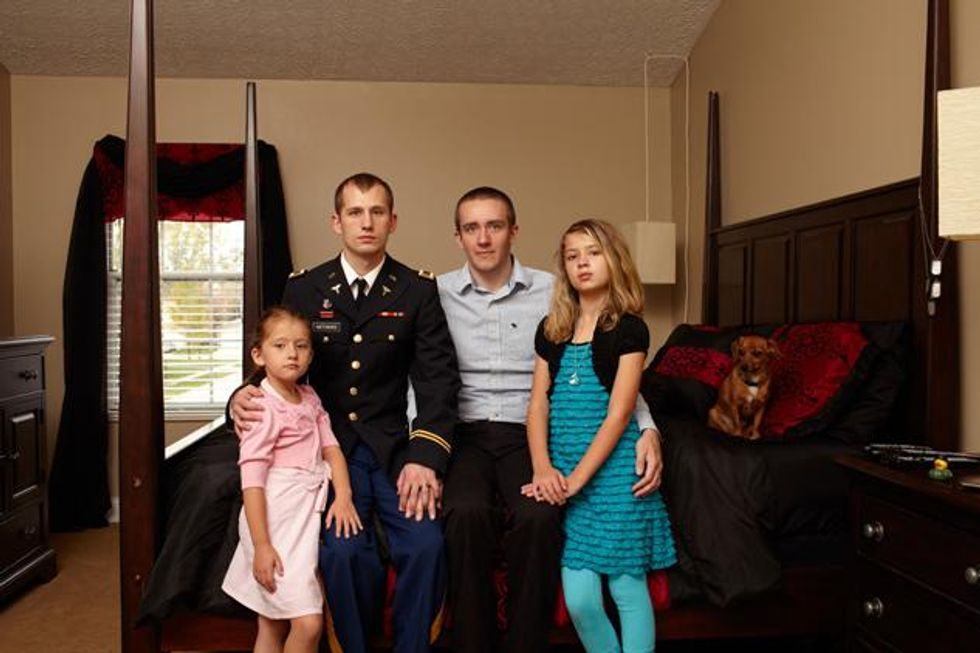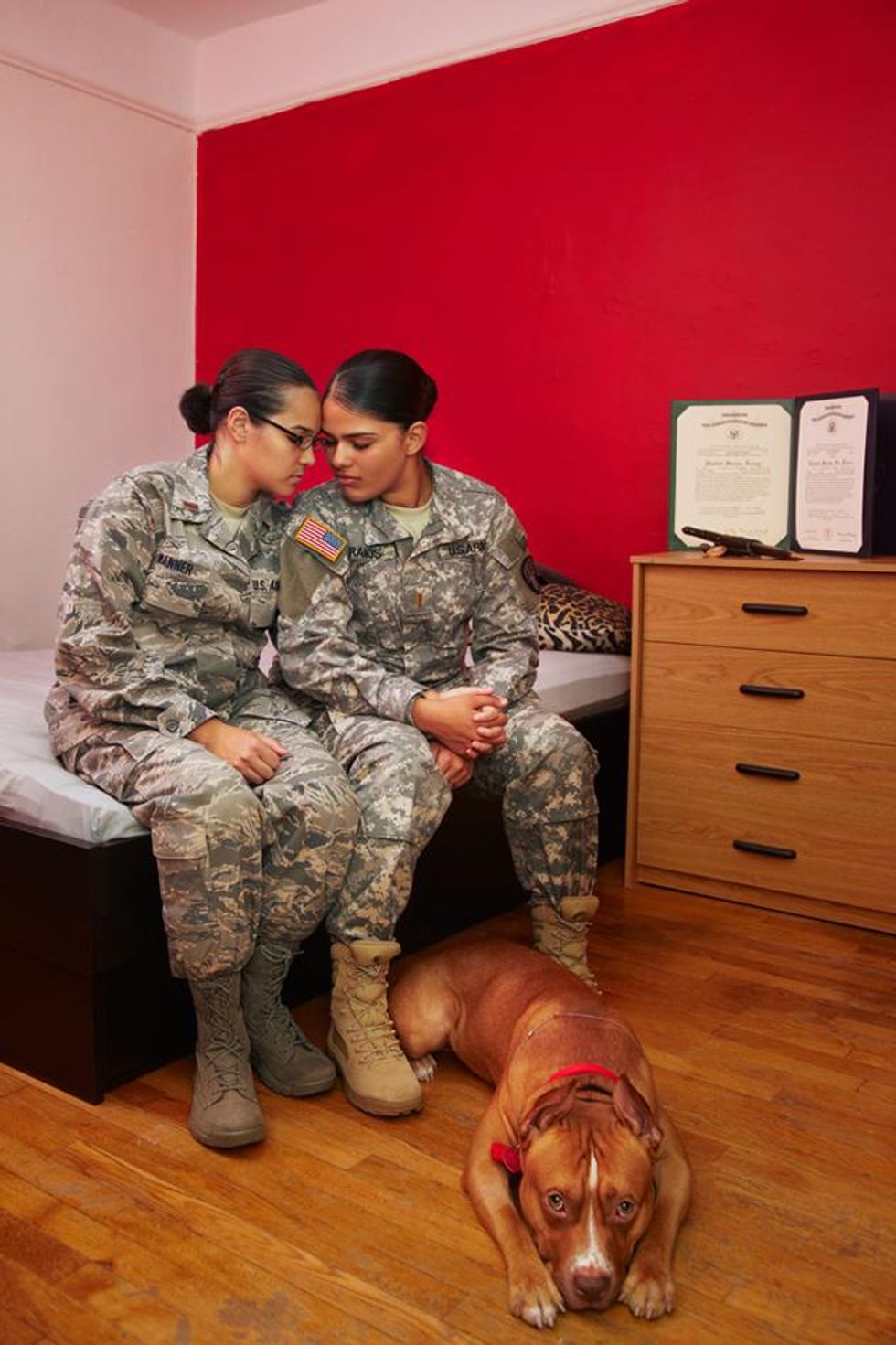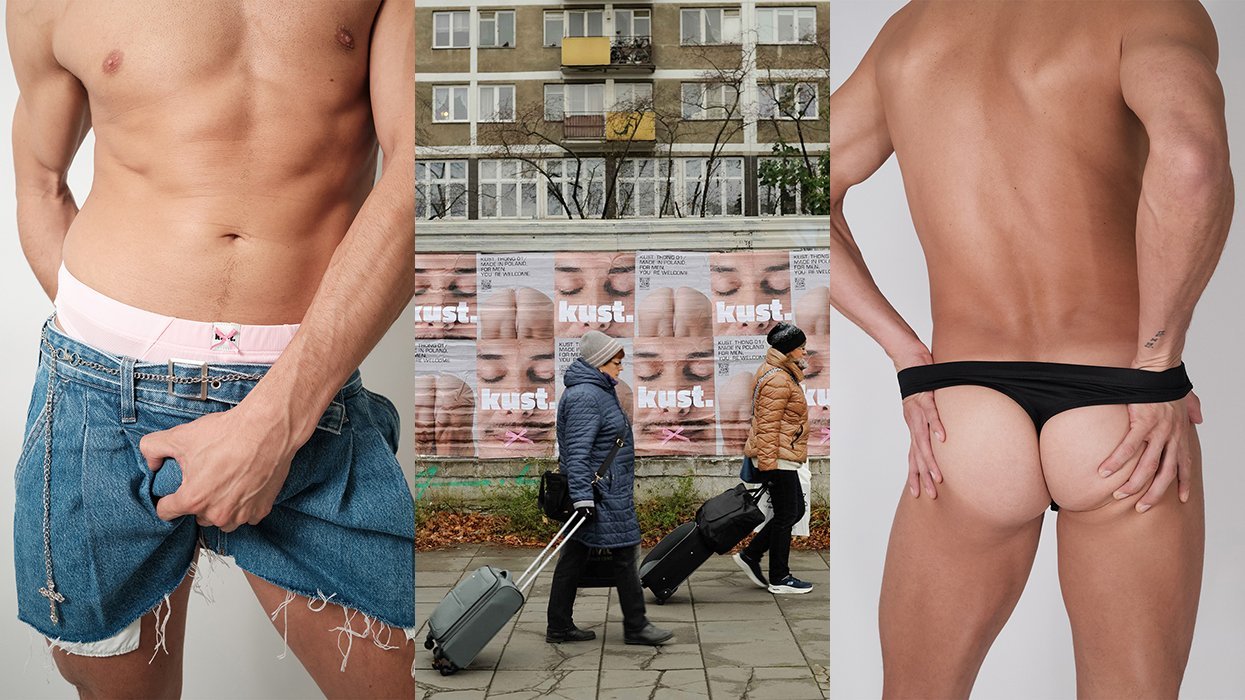
"Zachary & Marvin"
It wasn't long ago that gay and lesbian soldiers had to hide their families.
Now Photographer Tatjana Plitt wants to travel the country to finish her series of portraits called "Gay Warriors" -- a look at members of the military and their home lives. She says the pictures help draw attention to the discrimination these families still endure as a result of the Defense of Marriage Act, which prevents the military from recognizing their marriages and equalizing benefits.
The Advocate spoke with Plitt about the series, about her Kickstarter campaign to support the project, and why the photos are often taken in bedrooms. Check out more of her photos on the following pages.
The Advocate: What were you doing before this project, and what suddenly inspired you to take military portraits?
The focus of my art practice has always been portraiture. I am interested in how cultural narratives impact the lived experience, emotions, desires, relationships and identities of the people I photograph. Before this current project, I was working on a series of portraits based on the imagery of Harlequin romance novels, in which real couples performed a highly staged, climactic romantic moment in their own domestic spaces. I turned to taking portraits of same-sex military couples because the challenging situation they are currently in gives us a powerful opportunity to re-examine our cultural narratives around marriage and family. Although "don't ask, don't tell" was repealed in 2011, same-sex couples in the military still face discrimination from the very country they are fighting to protect. The Defense of Marriage Act and some Department of Defense policies prevent these soldiers and their families from being entitled to the protections, benefits and responsibilities their heterosexual counterparts automatically receive.
 "Steve & Josh Snyder-Hill"
"Steve & Josh Snyder-Hill"
What's your personal connection to the military?
I have an uncle who served in the military for 26 years and a cousin who has been serving for 15 years. Having seen first hand the emotional and financial strain it put on the whole family, I cannot imagine how much more difficult it is for same-sex couples, who do not have access to the additional support military families need to cope with the stress that comes with military service.
When you're setting up a portrait, what is the message you're trying to send with the staging?
I have photographed most of these couples in the intimacy of their bedrooms because it is the site that is up for debate, essentially. Sexuality is respected as private in the lives of other citizens, but has been politicized and made a cause for discrimination for same-sex couples. By welcoming viewers into the controversial space that has been deemed taboo and "alternative," these couples invite viewers to connect with them and their families, and to see that there are fewer differences in their love, affection, hopes and dreams, than people might imagine.
Also, I have based the portraits on the historic imagery of 17th century marriage and family portraits. The function of a marriage portrait was to legitimize a couple's marriage, as the formal and legal structures we have today did not yet exist. These paintings also served to celebrate the nobility, respectability and wealth of this new family union. In the same way, my portraits celebrate the respectability and validity of these same-sex couples and provide a contemporary take on the notion of traditional marriage and family.

"Phillip & Stephen"
Is there something that can be best learned about these subjects only from a photograph?
Photographs are direct imprints from reality, giving us a unique way to relate to what, or who, is reflected within them. People can look into the eyes of their fellow human beings, no matter how great the distance in time, place and experience, and connect with their stories and emotions in a direct, powerful way. These photographs give us a chance to see who these brave souls are, revealing their humanity, fragility, strength and love for each other.
What's the most striking story you've heard so far from one of the subjects while taking the photographs?
Everyone has had a touching story to tell, but Phillip and Stephen's really struck me. Phillip Zimmerman was a highly qualified Arabic and Farsi interpreter in the Navy, until they kicked him out in 1986 for being gay. He lost a career that meant the world to him; the loss and rejection haunted him for 25 years, until "don't ask, don't tell" was repealed and he could once again serve the country he loves. He is now serving the Coast Guard Auxilliary as an Arabic and Farsi interpreter. Seeing Phillip beam with pride at being back in uniform, the emotional burden of 25 years melting away and Stephen, his partner of 17 years -- now husband -- supporting him through all of it, brings a tear to my eye every time I look at their picture.

"Cameron, Kelly & Hannah"
 "Zachary, Marshal, Emma & Taylor"
"Zachary, Marshal, Emma & Taylor" "Idalia & Angelie"
"Idalia & Angelie"